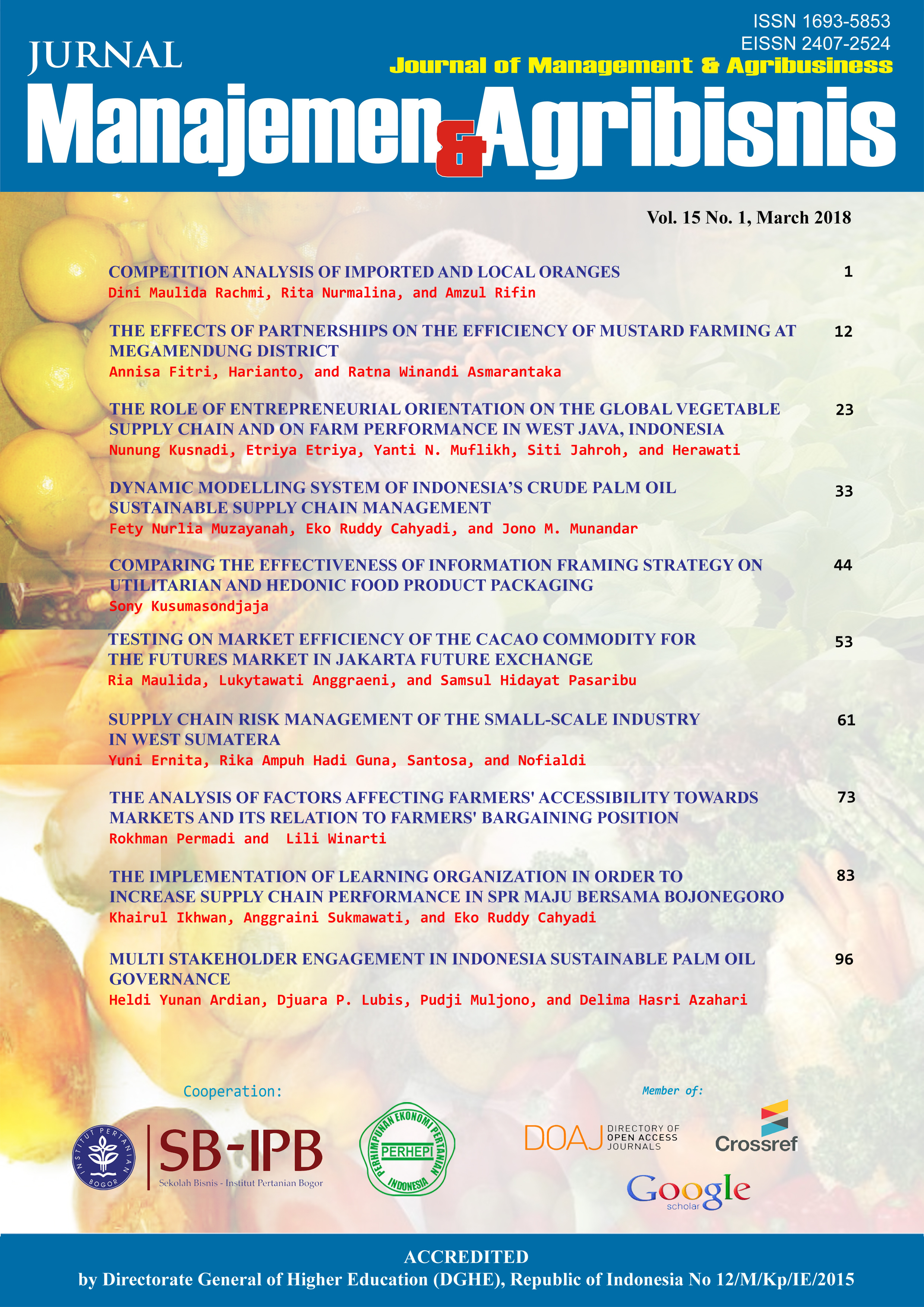Testing on Market Efficiency of the Cacao Commodity for the Futures Market in Jakarta Future Exchange
Abstract
The investigation of the efficient market validity hypothesis is a favorite topic in financial literature. However, there are still limited research on futures market commodity, especially the futures market in Indonesia. The objectives of this study were to analyze the development of cacao commodity futures market trading and determine its market efficiency. This study used value of trading volume, daily spot price and futures price of cacao commodity trading market from December 2011 to December 2016. Descriptive analysis showed that the development of cacao commodity futures trading market from value of trading volume of cacao commodity experienced fluctuating growth between -126.050% and 39.480%, and average growth of cacao by -6.462%. Augmented Dickey-Fuller (ADF) root test, Augmented Engle Granger (AEG) Error Correction Model Test (ECM) were used as the bases for the analyses. The results of the study showed that cocoa commodity futures market in Indonesia is an efficient market and contained risk premium. The implication of this research for market participants or investors is that they may choose to carry out hedging activities because cacao is an efficient market in the short term and contains risk premium.
Authors
Authors who publish with this journal agree to the following terms:
- Authors retain copyright and grant the journal right of first publication with the work simultaneously licensed under a Creative Commons Attribution License that allows others to share the work with an acknowledgement of the work's authorship and initial publication in this journal.
- Authors are able to enter into separate, additional contractual arrangements for the non-exclusive distribution of the journal's published version of the work (e.g., post it to an institutional repository or publish it in a book), with an acknowledgement of its initial publication in this journal.
- Authors are permitted and encouraged to post their work online (e.g., in institutional repositories or on their website) prior to and during the submission process, as it can lead to productive exchanges, as well as earlier and greater citation of published work (See The Effect of Open Access).

